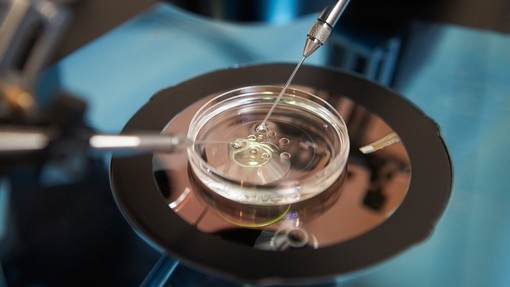COVID-19 vaccines – is a global approach for universal access achievable?

Details
IP rights in drug discovery for development of vaccines for COVID-19
Every day brings news of another pharma or biotech company joining the race to develop COVID-19 vaccines and treatments. According to some reports over two hundred vaccines are currently in development.
At the outset of the crisis there was an emerging consensus that a global response would be needed, including for vaccine development. However, as the crisis has played out, this position seems to have changed as it has become clear that each country’s experience of COVID-19 and its response to the virus has been different. Demographics, hospital and diagnostics infrastructure and manufacturing capability for PPE have all played a part to date. And going forward, each country and its pharmaceutical industry is likely to have a different approach to vaccine development.
No one doubts the need for collaboration, particularly given the scale of what everyone is trying to deliver, both in terms of research and subsequent manufacturing and distribution. And there are hopeful signs of multiple significant collaborations having been established, including GSK and Sanofi, Astra Zeneca and the University of Oxford, Pfizer and BioNTech and Merck and Thermis. But the sector is used to collaborating, less so sharing the outputs of collaborations for universal access.
So is it really possible to harness the collaborative momentum generated by the global crisis to create an approach to vaccine development that will deliver equitable access on a global scale? Or will the realities of international drug discovery and development approaches prevent this?
Global initiatives to encourage collaboration
Building on existing World Health Organization (WHO) and United Nations initiatives, the WHO launched the COVID-19 Technology Access Pool (C-TAP) at the end of May with the aim of accelerating discovery of vaccines as well as other treatments.
A key element of the initiative is transparency, including in relation to disclosure of gene sequences and data, and results of clinical trials. Linked to this, two elements are of particular interest from a legal perspective:
- Governments and other funders are encouraged to include clauses in funding agreements with pharmaceutical companies and other innovators about equitable distribution, affordability and the publication of trial data.
- Potential vaccines, treatments and technologies developed in response to COVID19 should be licensed on non-exclusive and global bases to the UN’s Medicines Patent Pool, and/or made available through other public health research and development mechanisms, consortia or initiatives that facilitate global and transparent access, and/or voluntary non-enforcement of intellectual property rights.
Predictably enough, there is scepticism about whether a voluntary initiative of this nature can succeed. One might say that it is easy enough for the pharma giants to support the initiative in principle without ever giving access to their IP in the manner envisaged.
Exploiting IP generated by collaboration
Of course, the argument runs that any attempt to pool IP stifles the incentive to innovate. And the potential of any pharma or biotech company to develop drugs and technologies lies largely with its portfolio of IP and its capacity to protect it. The research-intensive nature of these companies means that their most important assets are the results of their research, which is both expensive and time consuming to undertake. But when companies are being funded directly by government to develop vaccines, and so using less of their own revenues, should they be giving more of their IP away for free or at discounted prices?
In the UK, one of the high profile vaccine projects which has had government funding allocated to it by the UK’s Vaccines Taskforce is the collaboration between Astra Zeneca and the University of Oxford, with Astra Zeneca already having secured contracts with the UK and US governments for delivery of the vaccines if successful.
One could argue that in this case the patents arising from the collaboration should not be treated as a private asset for exploitation but rather as a public asset to be licensed freely. But that may not be feasible, particularly given the number of vaccines under development and the consequential disincentive to continue funding research if similar work is already being advanced by other collaboratives (independently) or that competing IP is available or at a more advanced stage of development.
Perhaps the focus instead should be on finding mechanisms to allow Astra Zeneca and others in their position to retain ownership of their IP and benefit from a return on investment, while also allowing equitable distribution of their products. That may result in lower drug prices than ordinarily expected, but that may be an acceptable compromise.
Protecting IP used to develop vaccines
The IP we are talking about in response to the COVID-19 crisis is not limited to patents generated from vaccines. There is also the IP arising from drug discovery processes. And there is no hotter IP in that space than IP arising from artificial intelligence-driven processes.
It is well understood that the intersection of AI and intellectual property presents complex legal and ethical issues, for example whether autonomously AI-generated inventions should be patentable, and whether AI systems should be capable of ownership through intellectual property rights. There is also the issue of disclosure of AI algorithms from both a legal perspective (for patenting purposes) and ethically (for example, the UK government’s Code of conduct for data-driven health and care technology (July 2019) is explicit that the functionality and learning methodology of algorithms should be clear and transparent).
This is a live conversation - many of these issues were raised in the WIPO Conversation on Intellectual Property and Artificial Intelligence draft issues paper (December 2019). But the search for COVID-19 vaccines brings them to the forefront of considerations.
It seems highly unlikely that pharma companies and their collaborators will be prepared to grant licences to competitors in relation to any innovative technologies they already have or develop for the purpose of vaccines. Again, this may slow down or inhibit the development (and speed of development) of vaccines which can be distributed for universal access.
Conclusion
None of the issues raised above are intended to cast doubt on the ambition of a universal access approach, or the willingness of companies to signal their participation in related initiatives, but a recognition of the reality of the way in which the sector collaborates and operates is needed to manage expectations and, perhaps, maximise the chances of success.
This article was authored by Jamie Foster.
For further updates and other articles discussing the impact of the coronavirus please view our coronavirus hub.




